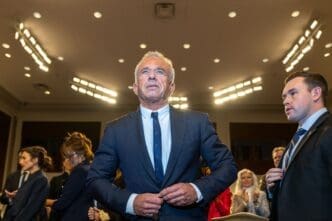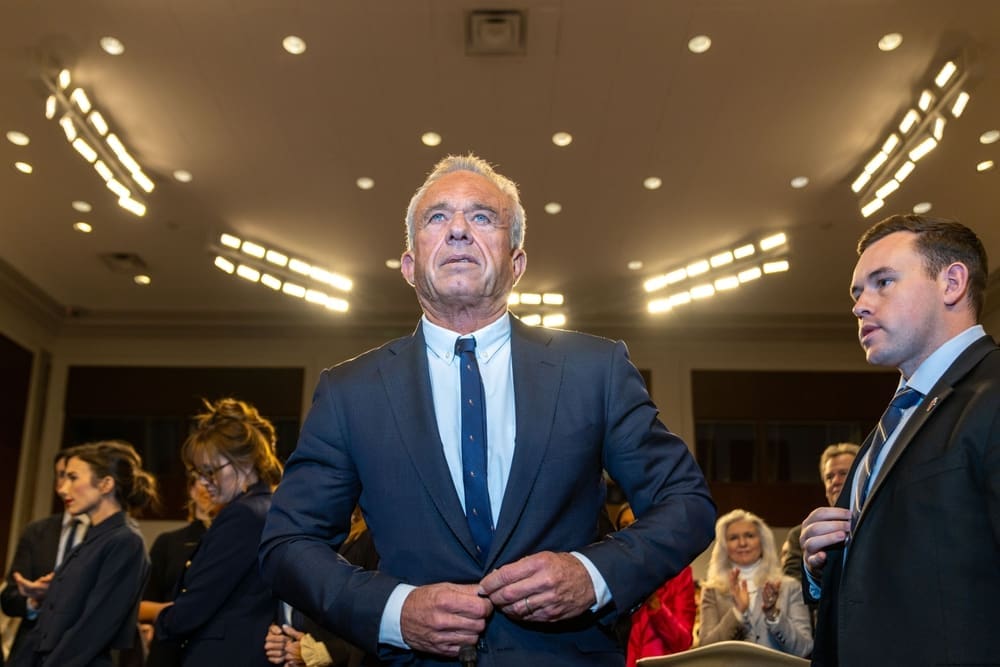Robert F. Kennedy Jr., confirmed as the Secretary of Health and Human Services (HHS) under President Donald Trump, has faced significant challenges due to a history of controversial, anti-science views. His past includes promoting theories such as chem trail conspiracies and doubts about HIV being the cause of AIDS, alongside the widely debunked claim that childhood vaccinations can lead to autism.
During his confirmation process, Kennedy sought to distance himself from these beliefs by emphasizing his support for vaccine safety, asserting vaccines’ essential role in healthcare, and assuring key senators that he would not alter federal vaccine guidance. Despite these assurances, Kennedy’s early tenure has seen a troubling withholding of pro-vaccine data amid an escalating measles outbreak and initiated projects that could undermine public trust in childhood vaccinations.
Compounding these issues are sweeping staff reductions at HHS, reducing its workforce from 82,000 to 62,000. As part of this overhaul, many staff members face layoffs or reassignment, and agencies with autonomous functions, such as those dealing with substance abuse and environmental health, are losing their independence. Critics argue that these changes could have severe long-term effects on public health.
HHS plays a critical role in American life, overseeing programs like Medicaid and Medicare and funding essential medical research. However, with the current leadership’s direction, there are concerns about the department’s ability to promote and protect public health. A significant measles outbreak, the largest since 2019, highlights the immediate consequences of these policies, with potential long-term impacts on public health systems.
Amidst these developments, Kennedy has been criticized for his approach to the outbreak, promoting alternative treatments with questionable efficacy and reducing staffing for infectious disease control. His administration has also shelved CDC data that could have emphasized the importance of vaccination in combating the outbreak, which continues to affect states with lower vaccination rates.
The ongoing reduction of HHS resources, paired with Kennedy’s controversial stance on vaccines, could further erode trust in vaccination. The national measles vaccination rate is concerningly below the target needed for herd immunity, creating conditions ripe for future outbreaks. Additionally, the potential impact on other health crises, such as a brewing H5N1 bird flu pandemic and the longstanding challenge of HIV, could be exacerbated by current policies.
The cuts to HHS extend to critical research and prevention programs for diseases like HIV. Previously successful efforts in combating these health threats may be jeopardized, potentially reversing hard-won gains in public health. As the department navigates these changes, the risk of diminished new drug development and altered substance abuse treatments poses further challenges.
The Long-Term View
- The reduction in HHS workforce and the potential diminishment of public health programs could lead to less effective disease prevention and control, impacting community health and safety.
- With vaccination rates falling below recommended levels, outbreaks of diseases like measles could become more frequent, leading to increased health risks, especially in vulnerable populations.
- The scaling back of research and prevention programs for diseases such as HIV may halt or reverse progress, resulting in higher infection rates and healthcare costs.
- Changes to substance abuse treatment approaches could impact the effectiveness of combating addiction, with repercussions for individuals and public health systems.
- The overall direction of HHS under current leadership may foster growing skepticism towards vaccines and medical interventions, affecting public confidence in healthcare initiatives.












